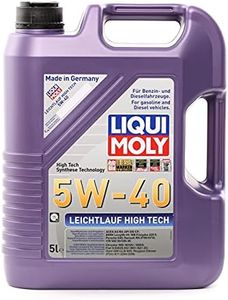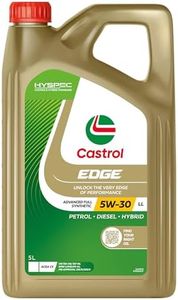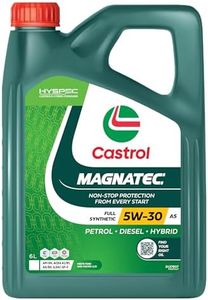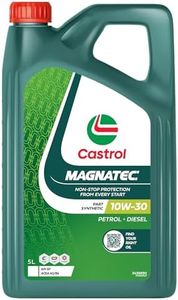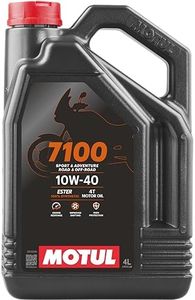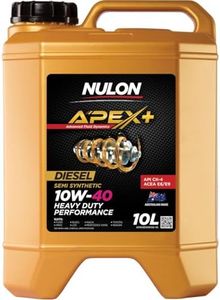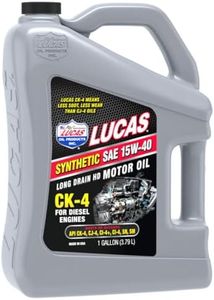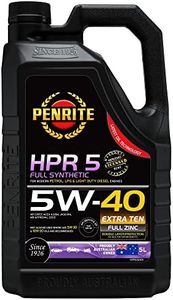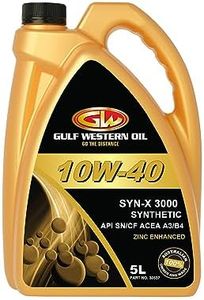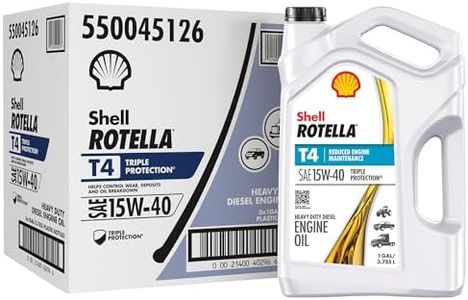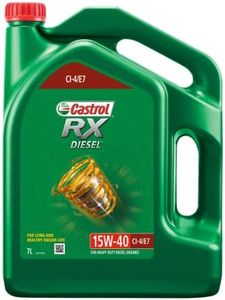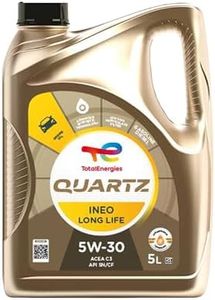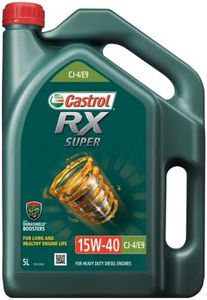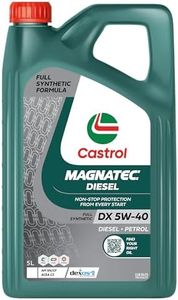We Use CookiesWe use cookies to enhance the security, performance,
functionality and for analytical and promotional activities. By continuing to browse this site you
are agreeing to our privacy policy
10 Best Diesel Oils
From leading brands and best sellers available on the web.By clicking on a link to a third party's website, log data is shared with that third party.
Buying Guide for the Best Diesel Oils
Choosing the right diesel oil for your engine is crucial for maintaining its health, ensuring smooth performance, and extending its lifespan. The right oil reduces wear, keeps the engine clean, and protects it under different operating conditions. When you're shopping for diesel oil, it's important to understand the specifications on the label and consider your vehicle's needs, your driving style, and the local climate. Always check your vehicle's manual for recommended oil types, but understanding the key specs will help you make a more informed choice and possibly go beyond minimum requirements for better engine care.Viscosity Grade (e.g. 15W-40, 5W-40)Viscosity grade describes how thick or thin the oil is at different temperatures; the first number (with 'W') shows cold weather performance, and the second number is for high temperature. Lower numbers in winter (like 5W or 10W) flow more easily when it’s cold and make starting easier, while higher numbers (like 15W) offer more protection in hot driving conditions or under heavy loads. Choosing the best viscosity depends on your climate and your engine: if you live somewhere very cold, go for a lower W number; for hotter climates or heavy-duty use, a higher number may be better. Follow your engine maker’s suggestion, but if your use is more severe (towing, off-road, heavy loads), you might benefit from a slightly higher viscosity.
Oil Type (Conventional, Synthetic Blend, Full Synthetic)Diesel oils come in different types: conventional, synthetic blend, and full synthetic. Conventional oils are mineral-based and work fine for standard engines and light use. Synthetic blends add some properties of synthetic oil—like better temperature resistance—at a usually lower price. Full synthetics offer the best performance: they protect better at high and low temperatures, clean the engine more efficiently, and often last longer. Pick synthetic or blends if you have a newer engine, drive in extreme climates, or want top engine protection, but for older or simpler engines under light duty, conventional oil can still work.
Additive Packages (Detergents, Dispersants, Anti-wear Agents, etc.)Additives are chemical compounds mixed into the oil to boost engine protection; they help clean engine parts (detergents/dispersants), reduce wear (anti-wear agents), and prevent rust or corrosion. Modern diesel engines need oils with more advanced additives, especially to handle soot and sludge. Check for oils marked as high in detergents or formulated for “emission system protection” if you have newer emission systems like DPF (diesel particulate filters). If your engine works hard or runs for long intervals between oil changes, a well-additized oil is important.
API and ACEA RatingsThe American Petroleum Institute (API) and the European ACEA ratings are quality marks showing the oil meets certain standards for diesel engine protection and performance. Look for the codes (like API CK-4, CJ-4, or ACEA E7, E9) on the bottle, as newer codes usually mean better performance for newer engines. Using oil with the right rating helps with warranty claims and engine safety; always match or exceed the oil rating specified in your owner's manual for the right fit.
Change Interval (Mileage/Time)Some oils are designed to last longer between changes, advertised as extended or long-drain interval oils. The right interval depends on your vehicle, oil type, and usage—hard driving, long idle times, or towing can require more frequent changes. While extended-interval oils are convenient, make sure your driving style and engine type match what the oil can handle. Stick with what’s listed in your manual, or adjust if your use is heavier or you drive in demanding conditions.

